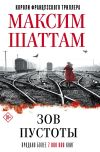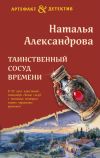
Автор книги: Виктор Миловидов
Жанр: Иностранные языки, Наука и Образование
Возрастные ограничения: +12
сообщить о неприемлемом содержимом
Текущая страница: 4 (всего у книги 16 страниц) [доступный отрывок для чтения: 5 страниц]
Marxists on the Parade
At last Mayday parade in the Soviet Union, after the tanks and the troops and the planes and the missiles rolled by there came ten men dressed in black.
«Are they Spies?» asked Gorby.
«They are Marxist economists,» replies the KGB director, «imagine the havoc they will wreak when we set them loose on the Americans.»
Слова и выражения:
havoc – опустошение, разрушение
missile – ракета
spy – шпион
troop – полк, воинское соединение
wreak – производить, изливать
roll by – проезжать
set loose on – выпускать (на)
Gorby – сокр. от Gorbatchev – Горбачев
Neoclassical Economics
Neoclassical economics is the mainstream economics today.
In the nineteenth century, most Western economists accepted what is now called classical theories of value and distribution. According to the classical value theory the value of a watch, for example, depended on the costs involved in producing that watch. The aggregate product of an economy was supposed to be distributed among different people or different social groups according to the costs borne by those people and groups in producing this product. This classical views had their roots in the ideas of Adam Smith, David Ricardo, John Stuart Mill and Karl Marx.
In practice these theories did not always work, and it was noticed that prices in the market did not necessarily reflect the value so described, as people were often ready to pay more than an object was supposed to cost. So, the classical theory of value, according to which value was a property of an product, was gradually substituted by theories in which value was reflecting the relationship between the product and the person purchasing the product. This two-fold relationship later came to be called supply and demand. This was a real breakthrough, and it is known now as the Marginal Revolution in economics. The theories which developed from these ideas later came to be called neoclassical economics.
The framework of the Marginal Revolution and the neoclassical economics is as follows. Individuals, both buyers and producers, make choices at the margin. Buyers tend to maximize their gains from getting goods up to a certain point where what they gain from an extra unit is balanced by what they give up to obtain it. Thus they maximize and optimize «utility» – the satisfaction which they get while consuming goods and services. In the same way workers provide labour to employers by balancing the gains from offering the marginal unit of their services (the wage they are supposed to get) with the the loss of leisure.
In the same way producers maximize profits by balancing the revenue they generate with the cost of producing the marginal units of a product. They also hire workers up to the point where the cost of additional hands is balanced by the value of output that those hands might manufacture.
So, the neoclassical theories take economic agents into consideration. These agents optimize their gains against all relevant constraints. In this context value results from the collision of unlimited desires with constraints, or scarcity. The decision problems are reconciled in markets, prices being the signals whether the conflicting desires can be reconciled.
At some price of refrigerators, for example, I want to buy a new refrigerator. At that same price others may also want to buy refrigerators. But producers may not want to manufacture as many refrigerators as all buyers want. So, this may lead us to «bid up» the price of refrigerators, ousting out some buyers and encouraging some producers to produce more of the product we want. The price changing, the imbalance between buy orders and sell orders is reduced. This is how optimization under constraint and market interdependence lead to an economic equilibrium. This is the neoclassical outlook.
Слова и выражения:
accept – принимать
breakthrough – прорыв, открытие
collision – столкновение
constraint – ограничение, сдерживающий фактор
desire – желание
equilibrium – равновесие
framework – конструкция, структура
gain – приобретение; приобретать
gradually – постепенно
imbalance – дисбаланс
interdependence – взаимозависимость
involve – включать в себя, вовлекать, втягивать
leisure – досуг, отдых
margin – предел, маржа
marginal – предельный, маргинальный
maximize – увеличивать
neoclassical – неоклассический
optimize – оптимизировать
outlook – взгляд, мировоззрение
property – свойство, качество
reconcile – примирять
relevant – соответствующий, соотносимый
scarcity – недостаток
signal – сигнал
substitute – заменять, подменять
tend – стремиться, следовать тенденции, устанавливать тенденцию
utility – полезность, практичность, выгодность
value theory – теория стоимости
two-fold – двусторонний
came to be called – стал называться
Marginal Revolution – Маржиналистская Революция (маржинализм – теория предельной полезности и производительности)
extra unit – дополнительная единица (продукции)
give up – оставлять, бросать
take into consideration – принимать во внимание
economic agents – участники экономической жизни, экономических процессов
in this context – в данном контексте
bid up – набавлять цену
oust out – вытеснять
buy order – заказ на продажу
sell order – заказ на покупку
Exercise 9
Answer the questions:
1. What view did the economists in the XIXth century accept?
2. What did the value of a product depend on, in accord with the classical value theory?
3. How were products distributed, according to this theory?
4. Whose ideas did the classical theory have roots in?
5. Why didn't the classical theory work in practice?
6. What theories were the classical theories substituted by?
7. What is value, in the neoclassical view?
8. Where do buyers and sellers make their choices, according to the neoclassical view?
9. What is «utility», in the neoclassical sense of the word?
10. Who do neoclassical theories take into consideration?
Rational Expectations Theory
The theory of rational expectations is based on the assumption that in many economic situations the outcome depends partly upon what people expect to happen. The value of a currency, for example, depends to a great extent on what people expect that currency's rate of depreciation to be. That is because people hurry to give up a currency that they expect to lose value, thereby contributing to its depreciation. In the same way, the price of shares depends partly on what the shares' buyers and sellers believe it to be in the future.
The relation between expectations and outcomes is two-fold. In forming their expectations, people try to forecast what will actually occur, and the results of their forecasting, provided that they were correct, help them form expectations for the future outcomes. There is continual feedback from past outcomes to current expectations, as in recurrent situations the way the future unfolds from the past tends to be stable, and people adjust their forecasts to conform to this stable pattern.
The theory of rational expectations states that outcomes do not differ regularly from what people expected them to be. Of course, sometimes people make forecasting errors, but those errors will not persistently occur. The rational expectation theory thus provides a trustworthy basis for some economic theories which have evident political implications. Those are the «random walk» or «efficient markets» theory of securities prices, the theory of the dynamics of hyperinflations, the «permanent income» and «life-cycle» theories of consumption, the theory of «tax smoothing,» and the design of economic stabilization policies.
Traditionally economists believed that there was a positive relationship between people's consumption and their current income. The rational expectation theory debates this issue stating that people consume out of their «permanent income,» which can be defined as the level of consumption that can be sustained while leaving wealth intact. This has changed the way economists think about short-term stabilization policies, such as temporary tax cuts, designed to stimulate the economy. Formerly economists believed that tax cuts would increase disposable income, thus causing people to consume more. Now, in accord with the permanent income model, it is believed that temporary tax cuts have little effect on consumption because people are relating their consumption decision to their wealth, not their current disposable income.

Слова и выражения:
conform – согласовывать(ся), приспосабливать(ся)
continual – продолжающийся, постоянный
contribute – прибавлять, доставлять, привносить
current – текущий, современный
disposable – имеющийся в наличии
dynamics – динамика
error – ошибка
evident – очевидный
expect – ожидать
expectation – ожидание
feedback – обратная связь
formerly – раньше, изначально
happen – случаться
hurry – спешить
hyperinflation – гиперинфляция
intact – нетронутый
occur – случаться, происходить
outcome – результат, исход
partly – частично
persistently – настойчиво, постоянно
positive – позитивный, положительный
provided – при условии (что)
rational – рациональный
recurrent – вновь повторяющийся
smoothing – смягчающий
stabilization – стабилизация
sustain – поддерживать, длить(ся)
temporary – временный
thereby – посредством этого
traditionally – традиционно
trustworthy – надежный
unfold – раскрыть(ся)
wealth – богатство, состояние, благосостояние
to a great extent – в значительной степени
rate of depreciation – степень обесценивания, норма амортизации
two-fold – двусторонняя
random walk – подчиняющееся случайности движение (наименование теории ценообразования на фондовом рынке)
permanent income – постоянный доход
current income – текущий доход
tax cuts – сокращение налогов
in accord with – в соответствии с
Exercise 10
Answer the questions:
1. What assumption is the theory of rational expectations based on?
2. What does the value of a currency depend on, according to this theory?
3. What do the prices of shares depend on, in the context of this theory?
4. What is the relation between expectations and outcomes?
5. What does the rational expectation theory provide a trustworthy basis for?
6. What is people's consumption positively related to, in the traditional economics?
7. What is people's consumption related to, in the rational expectations theory context?
8. What did the traditional economics think about temporary tax cuts in relation to their effect on consumption?
9. What sort of income are people relating their consumption decisions to?
10. What is permanent income?
3. Факторы производства
(Productive Forces)
Labour Force and Human Capital
Question: How many people does it take to make the economy work?
Answer: Only one, and it's me.
Proof:
The population of the United States is 180 million, but there are 64 million over 60 years of age, leaving 116 million to do the work.
People under 21 total 59 million which leaves 57 million people to do the work.
Because of the 31 million government employees, there are only 26 million left to do the work.
Six million in the armed forces leave twenty million workers.
Deduct 17 million State, county, and city employees, and we are left with three million to do the work.
There are 2,500,000 people in hospitals, asylums, and treatment facilities leaving half a million workers.
However, 450,000 of these are bums or others who will not work, leaving 50,000 to do the work.
Now, it may interest you to know that there are 49,998 people in jail so that leaves just 2 people to do all the work, and that is you and me, and I'm getting tired of doing everything myself!
Слова и выражения:
total – составлять в целом
deduct – вычитать
asylum – сумасшедший дом
bum – бродяга, лодырь
jail – тюремная камера
armed forces – вооруженные силы
treatment facilities – лечебные учреждения
Exercise 1
Answer the questions:
1. What is the population of the USA?
2. How many elderly people who do not work live in the USA?
3. How many people serve in the army?
4. How many people are State, county, and city employees?
5. What can one man do for the entire economy to make it work?
Labour Force
Labour force is one of the key points in each economy. It consists of a large part of what is called population. So, the amount and quality of labour force depend largely on the tendencies that affect population, which, in its turn, influences production.
In the years from 1950 to 1990 the world's population doubled, and now it is over 5,500 billion people. Only about 14 percent of the population growth was in developed countries, with around 86 percent in less developed countries. In developed countries this growth was caused by fertility and age distribution, while in less developed countries the main reasons were higher life expectancies and high birthrates. Life expectancy in developed countries was 74.0 years in 1990 as compared to 65.7 years in 1955 (62.0 and 41.0 respectively in less developed countries). By the 1900 the birthrate in developed countries fell to 1.9 births per woman. In the less developed countries it is 3.9 births per woman, which is still high enough to contribute substantially to population growth.
Lower birthrates and longer life lead to «population aging» which is most rapid in the developed world. The median age here rose from 28.2 in 1950 to about 35 close to the end of the century. In less developed countries the median age at present is only around 22.
The fear of population aging leads governments to introduce policies which aim at inducing people to have larger families (banning contraception and abortion, offering financial aid for women with babies, etc.)
At the same time many people still fear that global population growth will overwhelm the capacity of economies, and destroy the global ecosystem. Since Thomas Robert Malthus many economists believed that the growing number of people would make land increasingly scarce, and the rising food prices would leave the growing population starve.
The reality showed that those fears were poorly grounded. Cultivated land has become less important as the agricultural productivity has been boosted by fertilizers, pesticides, insecticides, new seed varieties, irrigation, mechanical draft power, and education. In its turn this made food prices fall, and the production per capita rise, quite contrary to the predictions of the former economists.
Hunger and malnutrition still exist in many parts of the world, but they result more from poverty and uneven income distribution than from population growth.
To convert population into labour force certain investments into human capital are supposed to be made. Education, good up-bringing, expenditures of medical and health care are also capital, as they raise earnings, improve health, and add to a person's quality of life over much of his lifetime. Therefore, economists consider expenditures on education, training, medical care, and so on as investments in human capital. Studies show that high school and college education greatly raise a person's income, and this is true for hundred countries with different cultures and economic systems.
Economic growth of a country depends closely on the amount of investments into human capital, and large increases in education and training have to a great extend accounted for the outstanding economic records of Japan, Taiwan, and other Asian economies in recent decades.
Слова и выражения:
abortion – аборт, абортирование
ban – запрет; запрещать
billion – ам. миллиард
birthrate – уровень рождаемости
boost – увеличивать, поднимать
contraception – использование противозачаточных средств; противозачаточные средства
contribute – вносить, добавлять, привносить
convert – преобразовывать
cultivate – культивировать, обрабатывать, окультуривать
decade – десятилетие
double – двойной; удваивать
earnings – заработки
ecosystem – экосистема
expectancy – ожидание (чего-либо), предположение (о чем-либо)
fertility – плодородие
fertilizer – удобрение
induce – вводить, внедрять, побуждать
insecticide – инсектицид
irrigation – ирригация
malnutrition – недоедание, недокорм
median – средний, срединный, среднеарифметический
outstanding – выдающийся
overwhelm – переполнять, поглощать, овладевать
pesticide – пестицид
population – население
poverty – бедность
prediction – предсказание
rapid – быстрый
respectively – соответственно
scarce – недостаточный, скудный
starve – голодать, умирать с голоду
substantially – существенным образом
tendency – тенденция
uneven – неровный
labour force – рабочая сила
key point – ключевой пункт
age distribution – показатели возрастной статистики
life expectancies – прогноз средней продолжительности жизни; средняя продолжительность жизни
per woman – на (одну) женщину
population aging – старение народонаселения
close to the end – близко к концу
poorly grounded – плохо обоснованный
seed variety – разнообразие семян; разновидность, сорт семян
draft power – тягловая сила
per capita – лат. на душу населения (букв.: на голову)
contrary to – в противоположность (чему-либо)
result from – проистекать из; быть результатом
human capital – человеческий капитал
up-bringing – воспитание
expenditures – расходы
health care – здравоохранение; забота о здоровье
quality оf life – качество жизни
to a great extend – в значительной степени
Exercise 2
Answer the questions:
1. What do the amount and quality of labour force depend on?
2. What is the population of the Earth now?
3. How much of the population growth were the developed countries responsible for in the years from 1950 to 1990.
4. What was the growth of the population caused by in both developed and less developed countries?
5. What was the birthrate in both developed and less developed countries?
6. What was the median age in developed countries in the end of the century?
7. What policies do governments use to withstand the population aging?
8. What fears have the economists had since the days of Robert Malthus?
9. Why were these fears poorly grounded?
10. What do hunger and malnutrition in many parts of the word result from?
11. What investments are supposed to be made so that population could be converted into labour force?
12. How does higher education affect a person's income?
Employment Opportunities for All
1
FBI Agent for Hire
Three men where at the FBI Building for a job interview.
The first man walked into the office.
The interviewing FBI agent said, «To be in the FBI you must be loyal, dedicated, and give us your all. Your wife is in the next room. I want you to go in there and shoot her with this gun.»
The man took the gun, hesitated, and said, "Sorry,
I can't do it."
The next interviewee came into the office.
The agent said, «To be in the FBI you must be loyal, dedicated, and give us your all. Your wife is in the next room. I want you to go in there and shoot her with this gun.»
The man took the gun, walked into the room, then walked out.
«Sorry,» he said.
The last man came into the office.
The inverviewer said, «To be in the FBI you must be loyal, dedicated, and give us your all. Your wife is in the next room. I want you to go in there and shoot her with this gun.»
The man took the gun and went into the room. The Agent heard six shots, silence, then a lot of screaming.
The man came out of the room and said, «Someone loaded the gun with blanks, so I beat her to death with the curtain railing!»
2
Manager: «Sorry, but I can't give you a job. I don't need much help.»
Job Applicant: «That's all right. In fact I'm just the right person in this case. You see, I won't be of much help anyway!»
3
A mathematician, an accountant and an economist apply for the same job.
The interviewer calls in the mathematician and asks, «What do two plus two equal?»
The mathematician replies, «Four.» The interviewer asks, «Four, exactly?» The mathematician looks at the interviewer incredulously and says, «Yes.»
Then the interviewer calls in the accountant and asks the same question, «What do two plus two equal?» The accountant says, «On average, four – give or take ten percent, but on average, four.»
Then the interviewer calls in the economist and poses the same question, «What do two plus two equal?» The economist gets up, locks the door, closes the shade, sits down next to the interviewer and says, «What do you want it to equal?»
4
«So tell me, Mrs. Smith,» asked the interviewer, «have you any other skills you think might be worth mentioning?»
«Actually, yes,» said the applicant modestly. «Last year I had two short stories published in national magazines, and I finished my novel.»
«Very impressive,» he commented, «but I was thinking of skills you could apply during office hours.»
Mrs. Smith explained brightly, «Oh, that was during office hours.»

Слова и выражения:
agent – агент
apply – применять
beat – бить
blank – пустой, незаполненный, холостой (патрон)
comment – комментировать, выражать мнение или оценку
curtain – занавеска, штора
dedicated – посвященный, посвятивший (себя)
exactly – точно
gun – пистолет
hesitate – колебаться, сомневаться
impressive – впечатляющий
incredulously – недоверчиво, скептически
interview – собеседование, интервью; собеседовать, интервьюировать
interviewee – интервьюируемый
load – грузить, нагружать, заряжать (оружие)
loyal – верный, преданный
modest – скромный
pose – ставить, предлагать
railing – поручень, карниз (для шторы)
screaming – крики, (истошные) вопли
shade – шторы, жалюзи
shoot – стрелять, убивать выстрелом из огнестрельного оружия
shot – выстрел
silence – тишина
FBI (Federal Bureau of Investigations) – Федеральное бюро расследований
job interview – собеседование при поступлении на работу
give your all – отдать всего себя
beat to death – забить до смерти
two plus two – два плюс два
оn average – в среднем
worth mentioning – достойный упоминания
national magazine – журнал, имеющий хождение по всей стране, «центральный» журнал
Exercise 3
Answer the questions:
1. What qualities should one have to be a FBI agent?
2. What does an applicant for a FBI position have to do in order to prove that he is fit for the job?
3. How many blanks was the gun loaded with?
4. Who of the three people (mathematician, accountant and economist) will be hired?
5. What do two plus two equal?
Правообладателям!
Данное произведение размещено по согласованию с ООО "ЛитРес" (20% исходного текста). Если размещение книги нарушает чьи-либо права, то сообщите об этом.Читателям!
Оплатили, но не знаете что делать дальше?





























